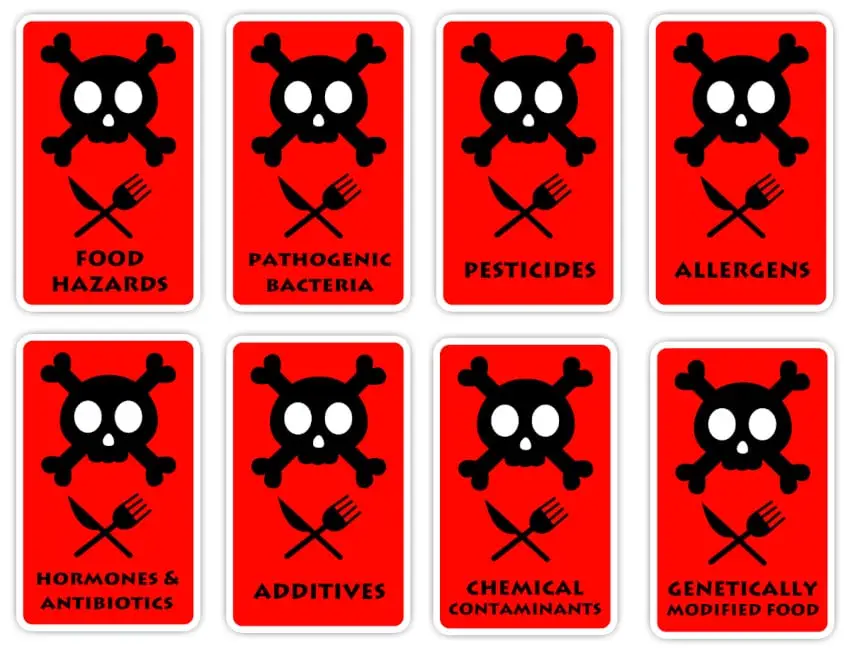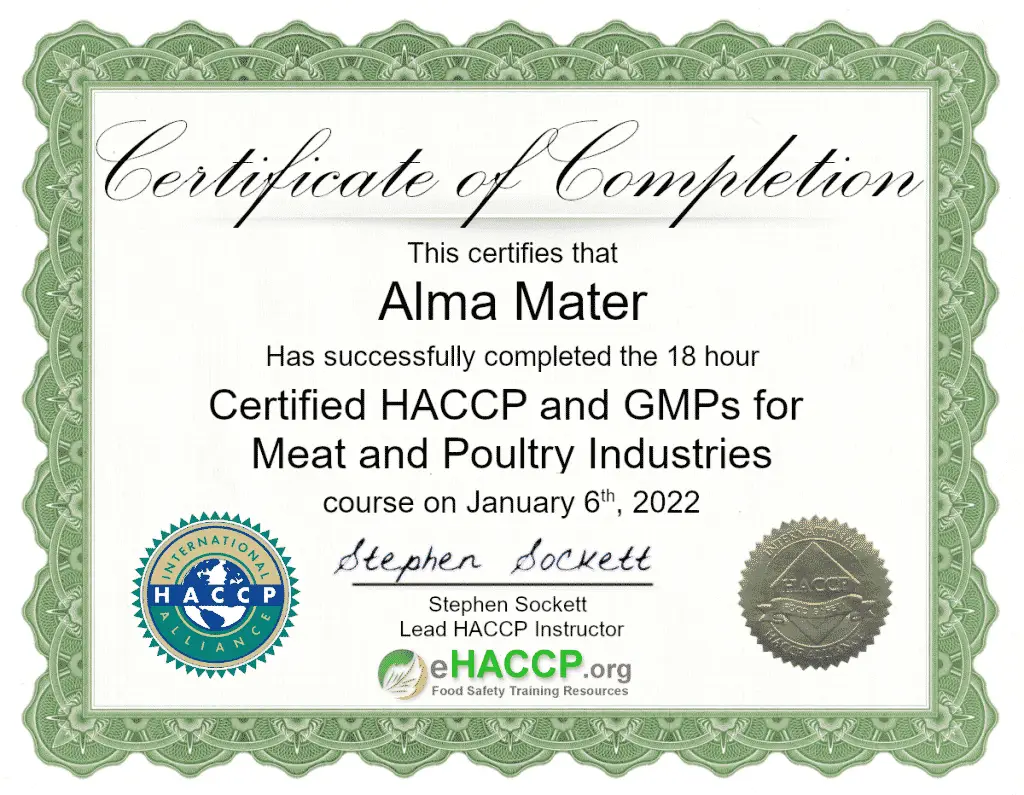How to Create a HACCP Plan

Conduct a hazard analysis: Identify potential physical, chemical, and biological hazards that could occur at each step of the food production or processing process.
Determine the critical control points (CCPs): These are points in the process where a hazard can be prevented, eliminated, or reduced to an acceptable level
What is a Foodborne Hazards?

A foodborne hazard is any biological, chemical, or physical agent that is present in food and has the potential to cause harm to human health.
Can I use HACCP at Home?

HACCP is typically used in commercial food production and preparation, but the principles of HACCP can be applied to home food safety as well. The goal of HACCP is to identify and control potential hazards in the food production and preparation process in order to ensure the safety of the food. While the specific steps of HACCP may need to be adapted for use in a home kitchen, the basic principles can still be applied.
Does a personal HACCP certificate have an expiration date?

The simple answer is no. However, an auditor may have a different idea. An accrediting body like the International HACCP Alliance or IHA, does not require an expiration date on an accredited course certificate but certain GFSI schemes require recertification every x amount of years. Companies also may require recertification. For example, Costco requires people to recertify every 5 years.
How to Get a HACCP Certificate?

Find a training course: There are a number of organizations that offer HACCP training courses, both in-person and online. These courses should be accredited an can vary in length and intensity, so it is important to find one that meets your needs and schedule.
How Much Do HACCP Consultants Make?

The salary of a HACCP consultant can vary depending on a number of factors, including the individual’s level of education and experience, the specific industry they work in, and the location of their job. In general, HACCP consultants can expect to earn an average salary of around $60,000 per year. Some HACCP consultants may earn more or less than this depending on their level of expertise and the demand for their services.
What Are The Prerequisites For Developing A HACCP Plan?

Operations such as regular cleaning and sanitation, and even proper handwashing to avoid cross – contamination, are all part of a bigger food safety program. As the term suggests, prerequisite programs must be satisfied to establish more complex food safety plans such as the Hazard Analysis Critical Control Point (HACCP).
Establishing correct prerequisite programs builds a solid foundation for other food safety plans and shows a firm commitment to protecting public health. These operations can significantly minimize the pressure on implementing food safety plans as the hazards are already addressed in the earlier stages of the production process.
Is Online HACCP Training Better Than Classroom Training?

In general, it is important to choose a HACCP training course that is delivered by and accredited and qualified instructors and meets the requirements of your industry or regulatory agency. Whether you choose online or classroom training, make sure to do your research and choose a reputable provider.
What is HACCP Training?

HACCP (Hazard Analysis and Critical Control Points) is a food safety management system that helps ensure that food is prepared and handled in a safe and hygienic manner. HACCP training involves educating food industry workers on the principles and practices of HACCP and how to implement them in their workplace. This may include understanding how to identify and assess food safety hazards, implementing preventive controls to address those hazards, and establishing procedures for monitoring and verifying that the controls are effective. HACCP training is often required for food industry workers as a way to protect public health and prevent foodborne illness.
